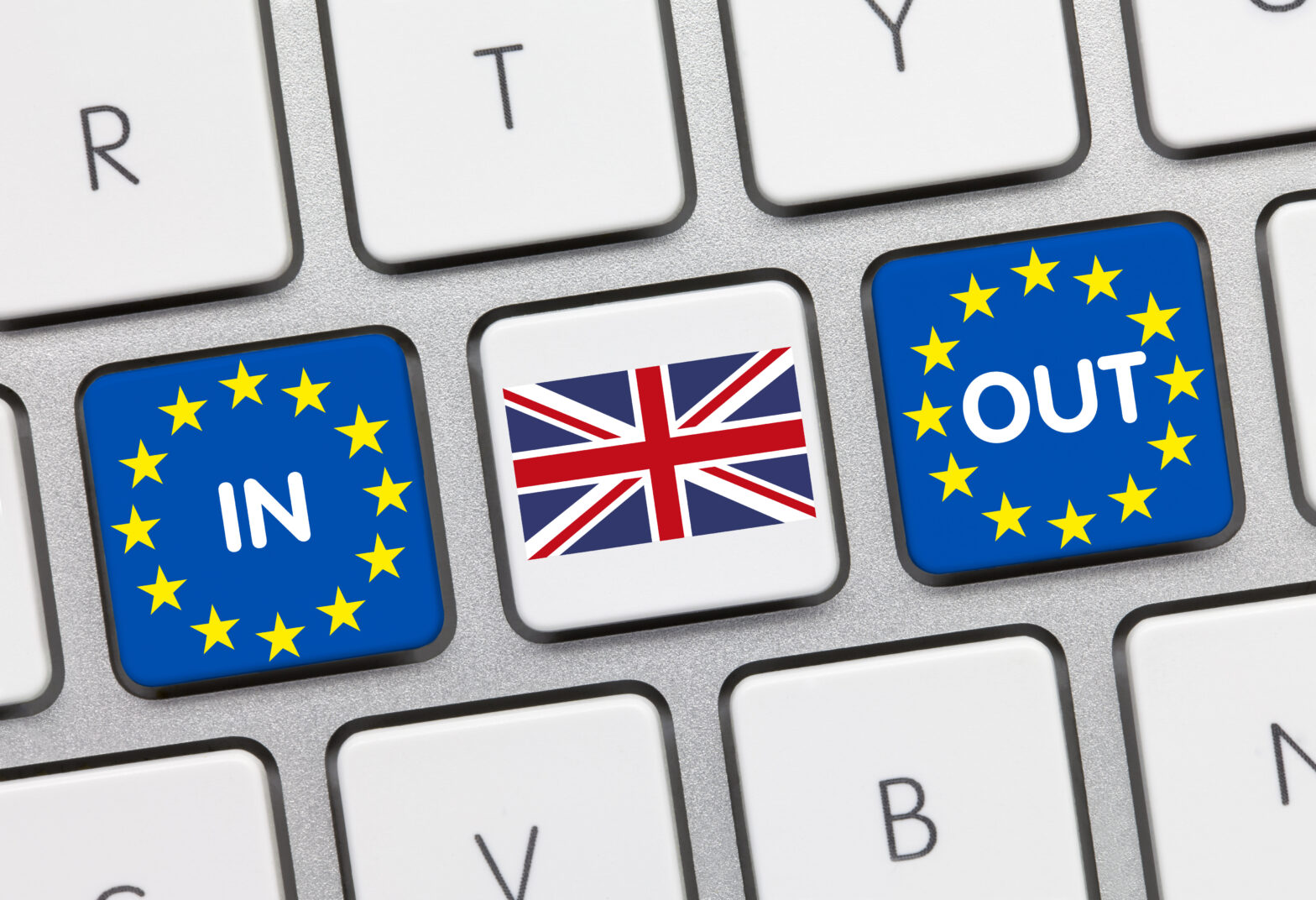As a UK subsidiary of an international group supplying thousands of businesses across the UK, we often touch on Brexit as a topic when talking to business executives, and we are often asked in turn if Brexit is going to affect our business. In the current climate, Brexit is on the tip of everyone’s tongues and many businesses are having to take practical steps in the build-up towards it. Indeed, we recently did a survey with YouGov which found that over a quarter of small businesses within the UK anticipate that Brexit will be a cost to them.
In regards to our business, the impact of Brexit will be more or less in line with how the UK economy develops as we leave the EU, in whatever form that takes. We think that it will be a transition rather than a big bang, and so we are reasonably confident in planning 2018.
Whilst each business is unique and will face different challenges, there are some main points that you should consider whilst we have Brexit on the horizon. With this in mind, we have put together four main practical steps that you should consider whilst we move into these uncertain times.
Assessing currency impact
As everyone is aware, after the Brexit vote there was an immediate currency devaluation.
This has affected many companies dealing in physical goods, regardless of whether they have significant direct imports or exports. So first and foremost, we need to ensure that you are ready for any eventuality concerning the current market.
This is because in today’s integrated Europe and global value chains, there is often movement of raw materials somewhere in the value chain. For Davpack, packaging supplies are constructed using mainly paper or plastics, and both of these are sourced in Europe. The low commodity value to some extent limits global movement, but both paper and plastic pellets are global commodity markets so are affected by global trends and events.
It’s important to be aware that the 12 per cent devaluation of sterling against the dollar will most likely have resulted in higher costs within the value chain. It takes time for these to work through, as suppliers exhaust options to delay, use currency reserves and come out of fixed priced contracts, and eventually pass the increases on. This is something we have experienced over the past 12 months in packaging supplies.
Many consumer goods are bought months in advance, and so this is another reason why the effect on consumer inflation has been delayed.
However, it has been long enough now for businesses to have experienced and dealt with the inflation effect of the post-vote currency devaluation, and so the question is whether there will be a further adjustment upon Brexit.
The currency and stock markets are normally a factor in the news ahead of the effect, and so this is why the political messages on deal or no deal, or hard vs soft Brexit are important. Most serious commentators are expecting something in the middle, and we are assuming that this has already been factored into the currency and so there will be some fluctuation but no large adjustments.
I can only talk from our own business experience, so if your company is heavily involved in direct imports and exports, you will have seen a much bigger currency effect and had to make corresponding pricing and volume decisions. As we head towards Brexit milestones, such companies may wish to forward buy Euros and Dollars to reduce their exposure to short term adjustments.
Political announcements are normally well orchestrated, and there is a Brexit process, so it is worth noting the points where major decisions and announcements are expected and reviewing your currency situation ahead of these.
Considering import/export barriers and red tape
Coming out of the EU may mean that we have to say goodbye to the free trade agreement.
This may mean that tariffs have to be paid on exported/imported goods, but in most cases these appear to be quite modest, and will be smaller than the post-vote inflation we have had to deal with so far.
However, more significantly, the red tape added will introduce administration and complexity and slow the movement of goods down. Companies with significant import/export activities need a contingency plan for this eventuality. Just as banks are ramping up foreign subsidiaries, companies involved in physical goods may need to develop contingency plans to hold stock or move some operations into the EU in order to deal with this risk.
There is a big question mark on whether the respective authorities are geared up to administer post-Brexit tariffs, and so we think it is fair to assume that this situation will be avoided or delayed within a transition arrangement.
Grants and subsidies
As talked about recently in the news, policy differences and differences in the rules under which subsidies are paid will have an impact to companies involved in or supplying to heavily subsidised sectors, such as agriculture. So anything designed under the EU to support and encourage activities, be it innovation and technology, medical research, renewable energy, or economic development of areas will cease to be supported by the EU, and come under UK government policy.
Without a Brexit agreement in place, it is difficult to predict the changes in this area, and so companies heavily affected by subsidies, either directly or via its customers, should develop contingency plans to reduce its reliance upon grants and subsidies.
Movement of people
This is probably the most politically charged area of the Brexit negotiation, but its impact on companies is likely to be limited immediately after Brexit.
From listening to news reports, there appears after the UK election to be more or less a consensus and already conversations with EU representatives about allowing EU nationals resident in the UK to remain here. Therefore, companies with EU staff are unlikely to lose them.
Whilst it is unclear what arrangements will be agreed for people to travel freely between the UK and EU, it is difficult to imagine a scenario where business travel is severely restricted. In the same way that US companies are able to trade with and operate within the EU, it should be possible for UK executives to carry out normal activities.
The most significant impact of Brexit is likely to be on seasonal workers, and professions with skill shortages. There are big question marks here because on the one hand the Government needs to protect the NHS and other services which rely on staff from the EU, on the other hand the public pressure on immigration policy that is evident from what political analysts say about the Brexit vote means that there are going to have to be some changes here.
Companies using many seasonal workers may see the supply of workers fall, so they may find it more difficult to staff their business on a flexible basis, and if labour supply is short it is a fair assumption that hourly rates will go up.
This is quite a tricky area to manage, but companies may need to shift towards more permanent staffing and smoothing out seasonality where possible, if they are to avoid these pressures post Brexit.
At Davpack, we considered these key Brexit issues. In the market of packaging supplies, Davpack is part of an international group, but because packaging is low value and bulky, there is limited import and export activity. It is not an area affected by grants or subsidies and we have only a small reliance on seasonal staff.
For as long as it seems that politicians on both sides want a post-Brexit transition, for various reasons (not least from their own administration perspective), then possible barriers and currency adjustments are likely to be gradual rather than sudden, and our business is not highly exposed here.
For Davpack, packaging supplies have already experienced the currency effect and we have taken the necessary steps to manage inflation in our business. The economy has held up quite well in this environment of inflation and political uncertainty around Brexit; the GDP and inflation forecasts for 2018 are neither great nor signalling danger.
Therefore, we feel quite comfortable to plan for our business to continue growing in the current environment, but we will ensure that our shareholders know that we have considered Brexit factors and understand our assumptions.
The practical steps you take towards Brexit will be unique to your business, but we recommend starting by identifying the key Brexit factors affecting your business. The next step is to understanding the worst case, best case and likely scenarios for each. You should plan your business on the likely scenario, but have contingency plans for high risk areas (think about the banks with scalable EU bases).
Also if you are exposed to currency movements, keep in mind the political calendar and announcements due, and take timely decisions on buying currency.
Barney Byfield is managing director at packaging supplies company davpack.co.uk





